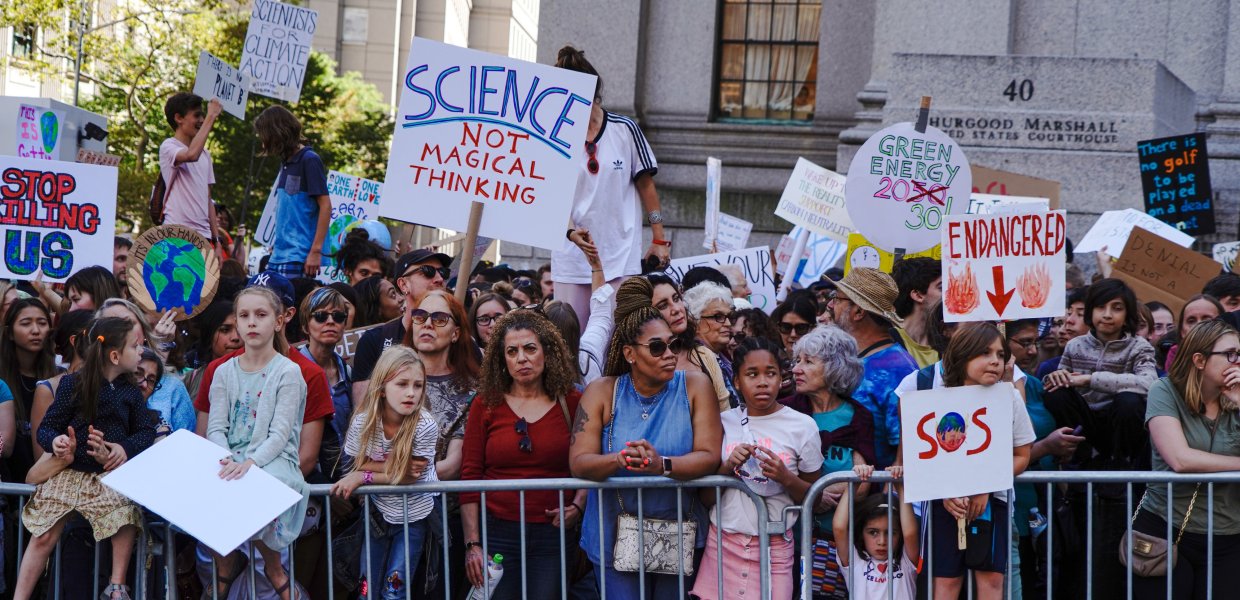In 2020, our country faced many challenges: a global pandemic that claimed thousands of souls, chronic unemployment, a housing crisis and foreign adversaries threatening our constitutional democracy, just to name a few. The bright spot amidst the chaos has been the rise in youth activism and the arc of change it has inspired.
Recently we’ve seen America and its youth take to the streets to march, protest and call for reform. We’ve seen children as young as 5 years old protesting for Breonna Taylor and George Floyd. We’ve seen students demanding that no other child’s life is lost to gun violence. We’ve seen women across the nation marching to dismantle systems of oppression. Their message is clear: it’s time for justice.
All over the world, young people are pushing back against the status quo. And it’s working. When a mass shooting at Stoneman Douglas High School in Parkland, Florida, left 17 people dead, students launched a gun safety campaign that resulted in 50 newly enacted reforms across the United States. Swedish activist Greta Thunberg took to the halls of the United Nations during the world’s Climate Action Summit to demand answers for the failure to recognize the existential crisis of climate change, which has helped motivate more than 60 countries to eliminate their carbon footprints by 2050. Their activism is creating an impact. But our youth can’t do it alone.
Communication professionals have the responsibility to help define the narrative of these movements. Our stories ensure that the public is equipped with the knowledge and information to make decisions about their participation and their vote, and help link generations that may be removed from today’s politics with the young people that inspire it. Today’s world requires that every business, organization, and political leader understands the next generation consumer, voter, and individual. What resonates are tangible human stories, captured on social and digital media that are widely accessible and easily shareable on a large scale.
Through social media, young people have been able to study activism outside of what they are taught in their textbooks. Students can learn about César Chávez and Dolores Huerta fighting to protect farm workers, and see the organization they founded tweeting about farm workers’ rights. When schools teach about Rev. Dr. Martin Luther King, Jr., students can follow his daughter’s work in social change. Or when we celebrate the anniversary of the 19th amendment, and reflect on the work of Sojourner Truth, they can learn what organizations are doing to ensure Black women’s access to voting. Communications professionals can make these leaders more accessible than ever before.
Movements for social change and calls for increased youth activism are not new. But today, our generation has realized its power. We understand that we have an outsized stake in the future of our country, and we have said enough is enough when it comes to prolonged and institutional forms of discrimination spreading like a burning flame that can’t be contained. We as communications professionals need to work to ensure that this moment doesn’t flame out. It’s up to all of us to spread the word about phone banking, sending postcards, and registering to vote. We must work to turn a moment into a movement, and then to a way of life.
To continue the legacy of leaders who came before us, we must increase voter turnout. We have seen how youth activism can drive voter turnout in unprecedented ways. A 2018 study by TargetSmart found a significant uptick in voter registration among people aged 18-29. Young people, inspired to ensure their institutions and leaders reflect their values, have the ability to create lasting change through the electoral process.
When I think about youth activism and voting, I think about Malala Yousafzai and how we must lead, take action and “realize the importance of our voice when we are silenced.” Youth activism is teaching us just that. We must all listen, stand up, speak up, and vote. All elections are important. Whether you’re voting for the next President of the United States, or you’re voting for your local city councilmember — your voice matters, your vote counts and you will make the difference.
Brenda Gonzalez is State Press Secretary for U.S. Senator Kamala D. Harris. Brenda directs all internal and external communications for the Senator's five district offices and 25 state staff members. She is a member of the USC Annenberg Center for PR Board of Advisors.
